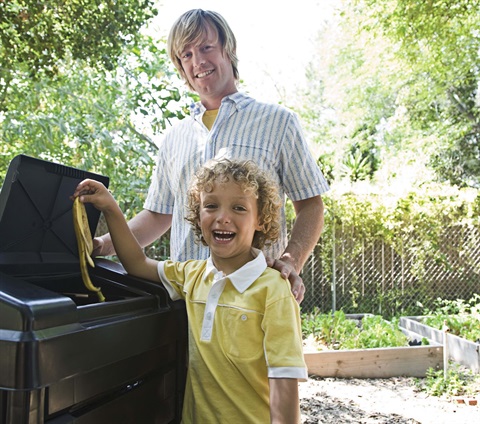Compost

Why Compost
Each year, Wisconsin households send 600 million pounds of “food waste” and yard materials to our landfills!
Composting is recycling in the most basic sense. It takes materials from the home and yard and returns them to the environment in a usable form. Composting yard materials and certain food scraps provides a valuable “soil amendment” for gardens and landscaping while reducing landfill costs.
Compost is considered a soil amendment, rather than a fertilizer because it usually contains small amounts of nutrients such as nitrogen, phosphorus, and potassium. Commercial lawn fertilizers contain large amounts of all three.
What to Compost
- Garden & yard materials such as grass clippings, leaves, annual plants, and vegetables.
- Kitchen scraps such as vegetables, eggshells, fruit peels, and coffee grounds.

- Manure from plant-eating animals (NOT from household pets).
- Plants with disease or insect problems (compost only during summer months).
Do Not Compost: bones, meat scraps, dairy products, twigs/branches
How to Compost
Home composting can be done in bins or in a heap. However, bins are a good way to manage materials in an urban setting.
- Alternate layers of organic material
- Keep moist (Iike a wrung out sponge)
- Turn every 4-6 weeks to add oxygen
It's really that easy!
Brochures are available in the display at the Village Hall.